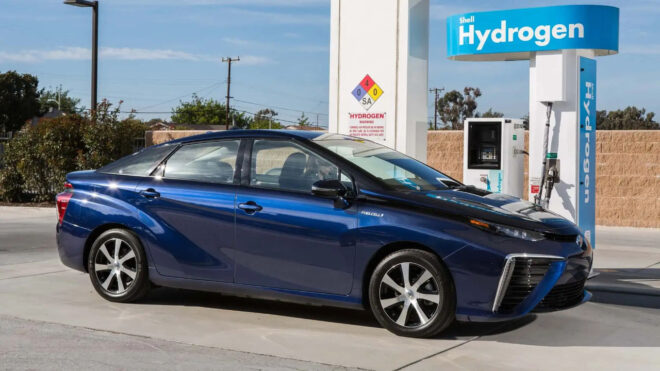ShellAs far as it was learned with the official announcement, all hydrogen stations in California, USA is closing.
In the future of the automobile industry fully electric vehicles together with hydrogen based vehicles However, progress in hydrogen is not at the hoped-for level, and there are even steps that push the process back. For example today It was announced that Shell company will close all hydrogen stations in California, USA. The company decided to close a total of seven different stations here, and the reason for this was Challenges in hydrogen supply And other foreign market factors showed. Hydrogen stations, which are known to create high costs for the business to store hydrogen and keep it available for proper use, still interest very, very few people because there are few hydrogen cars on the roads (also in the US market).
YOU MAY BE INTERESTED IN
The latest on hydrogen General Motors (GM) And honda had come to the fore. Because the two famous companies are available in many different locations through their joint venture company “FCSM (Fuel Cell System Manufacturing)”, which was established in the USA in 2017. announced that they have started the production of suitable hydrogen fuel cells based in Michigan. Hydrogen fuel cells use compressed hydrogen as fuel and do not create any negative emissions into the environment because they only emit water vapor. There are many companies working to bring this technology to their vehicles, and of course, GM and Honda are also making important future plans in this regard.
South Korean automobile giant Hyundai is also working on hydrogen. Hyundai Turkey’s statement about the company’s latest work on the hydrogen side was as follows: “Hyundai Motor Company continues its work and investments at full speed in order to leave a cleaner environment to future generations. The company, which aims to rapidly grow the existing hydrogen ecosystem in Korea by sharing it in the international arena and respond more actively to climate change, will conduct case studies and consultancy on hydrogen projects with its Korean partners.
The company will also focus on recycling by introducing the ‘Waste to Hydrogen’ process. Aiming to take an active role in the hydrogen production method, Hyundai will produce clean hydrogen with biogas obtained from organic waste such as food waste, sewage sludge and animal manure. It will produce an environmentally friendly energy source through waste sourcing while also eliminating impurities such as methane.
The company’s entire waste-to-hydrogen production process underlines the importance of reducing methane, a major contributor to climate change. It also actively supports the biogas industry by converting methane from waste into hydrogen for environmentally friendly mobility, energy production and industrial use. “Waste-to-hydrogen facilities in South Korea also contribute to a carbon neutral approach through the use of renewable energy, producing approximately 500 kilograms of hydrogen per day.”
